7 Calcium Deficiency Symptoms, According to Doctors

Being deficient in a vitamin or mineral can be a confounding health problem to have, not least because the symptoms can often be subtle. Yet experts say that in the case of a calcium deficiency, it’s crucial to spot a problem before it causes serious damage. That’s because, in the most severe cases, low calcium levels can lead to seizures, congestive heart failure, or spasms in the throat that can cause difficulty breathing. By treating it early—usually using simple interventions—you can save yourself a world of health woes.
But before you reach for dietary supplements to get calcium into your system, it’s important to get acquainted with how it helps your body function. This is everything you need to know about calcium deficiencies, including the seven symptoms that could tip you off to having dangerously low levels.
RELATED: 8 Signs You’re Not Getting Enough Iron, Doctors Say.
What Is Calcium?

Many people singularly associate calcium with bone health, but experts say that it influences a much wider range of functions.
“Calcium is a mineral that is essential for bone health, muscle contraction, nerve function, blood clotting, cell signaling, and enzyme and heart function,” says Raj Dasgupta, MD, chief medical advisor at Fortune Recommends Health.
It is also one of the most widely abundant minerals in the human body, the National Institutes of Health (NIH) points out.
“Calcium is arguably one of the most important minerals in your body,” adds Kyle Zagrodzky, founder and CEO of the bone health company OsteoStrong. “It’s used in every function. If you blink your eyes, if your heart beats, if you think a thought, you’re using calcium.”
Most healthy adults should aim for a daily calcium intake of 1,000 mg, according to the NIH’s Office of Dietary Supplements. You can find dietary sources of calcium in dairy products such as milk, yogurt, and cheese, certain vegetables including kale, bok choy, and broccoli, some types of fish, and calcium-fortified beverages.
RELATED: 12 Supplements You Should Never Take Together, Medical Experts Say.
What Is Hypocalcemia?

Ninety-nine percent of the calcium in your body is found inside your bones.
“Calcium looks at your bones as a storage unit. When your body needs calcium, it pulls it out of your bones,” explains Zagrodsky. The remaining one percent is used in your blood and tissues. However, that one percent is vital to the many functions affected by your calcium levels, so your body works hard to maintain a steady state.
“If calcium levels drop too low in the blood, parathyroid hormone (PTH) will signal the bones to release calcium into the bloodstream. This hormone may also activate vitamin D to improve the absorption of calcium in the intestines,” explains the Harvard T.H. Chan School of Public Health. “At the same time, PTH signals the kidneys to release less calcium in the urine.”
“When the body has enough calcium, a different hormone called calcitonin works to do the opposite: it lowers calcium levels in the blood by stopping the release of calcium from bones and signaling the kidneys to rid more of it in the urine,” their experts write.
Hypocalcemia is a condition that occurs when your blood calcium levels are too low. According to the Cleveland Clinic, there are many underlying causes that can trigger hypocalcemia, but the most common risk factors are low levels of vitamin D and the parathyroid glands secreting abnormally low levels of parathyroid hormones.
RELATED: 7 Low Magnesium Symptoms to Watch Out For, According to Doctors.
How Is It Diagnosed?
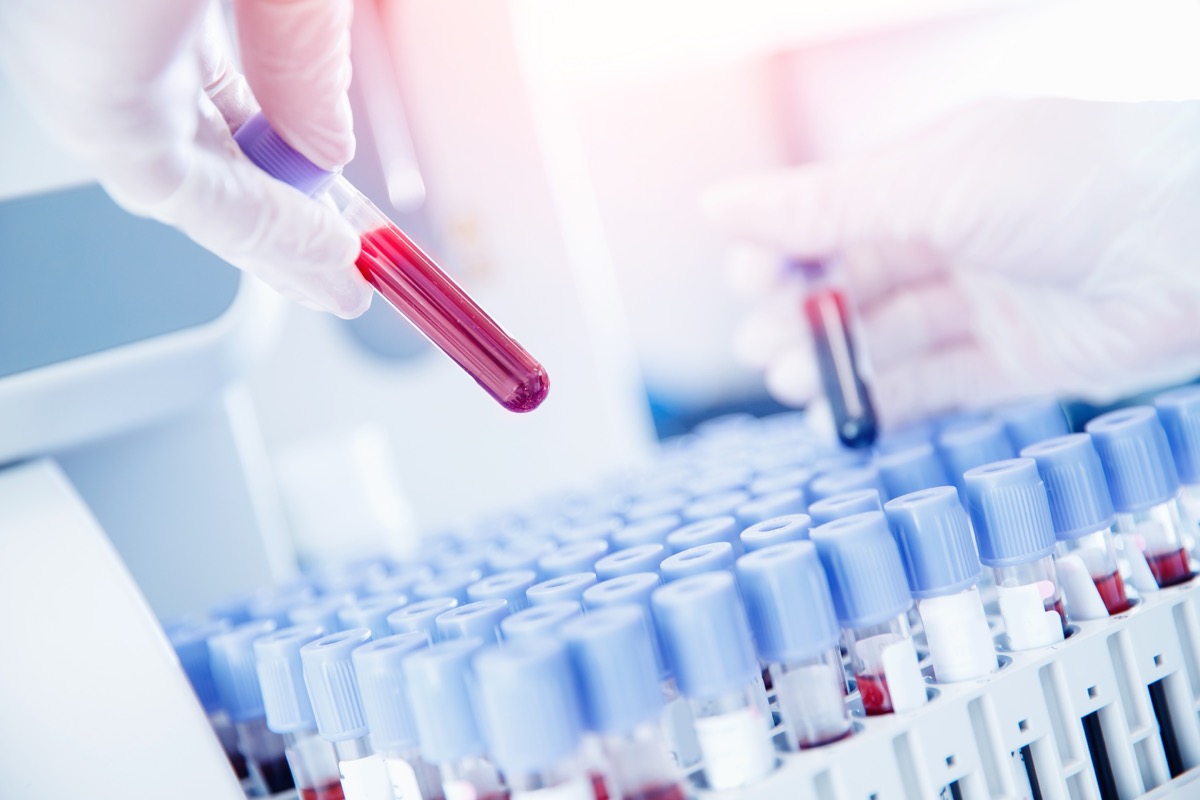
If you believe you may have hypocalcemia, your doctor can help you confirm it with a blood test used to measure your calcium levels, says Dasgupta.
Your medical provider may run a basic metabolic panel (BMP) or complete metabolic panel (CMP), and may also check your albumin level and your ionized calcium level. “They sometimes also test for vitamin D and parathyroid hormone,” the doctor tells Best Life.
What Conditions Are Related to a Lack of Calcium?
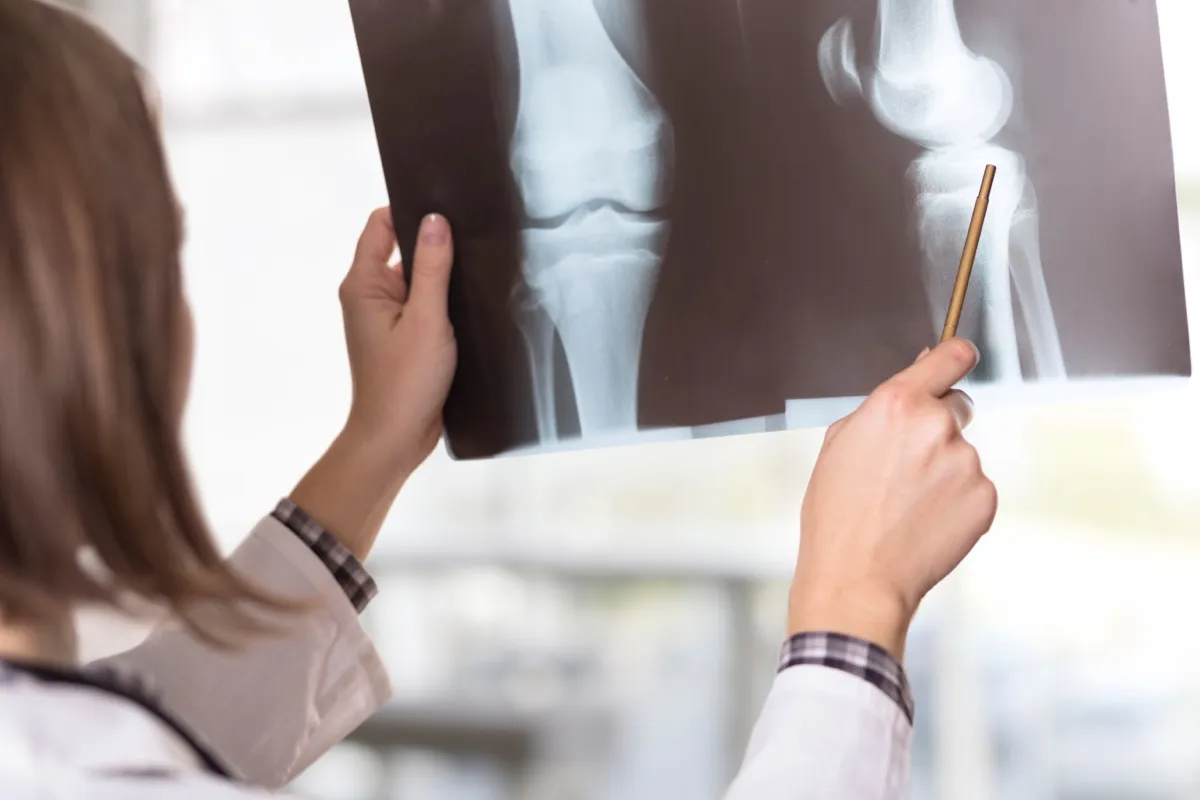
Hypocalcemia refers to a low level of calcium in the blood, not the bones. However, having a chronic calcium deficiency is considered a common risk factor for osteoporosis, a bone disease marked by decreases in bone mass or strength.
Dasgupta notes that having low calcium levels can also cause osteopenia, which causes decreases in bone mineral density, osteomalacia, which causes soft bones, or rickets in children, which result in soft and poorly formed bones.
There is also some evidence to suggest that calcium levels can influence blood pressure. “Several studies have shown that increasing calcium intake lowers blood pressure even in individuals within a normal blood pressure range,” writes a 2022 meta-analysis that reviewed 20 studies on the subject.
RELATED: 6 Supplements You Should Never Take If You’re Over 60, Doctors Say.
What Are the Main Calcium Deficiency Symptoms?
Many people with a calcium deficiency develop only mild symptoms, and some develop no symptoms at all. However, these are the main symptoms of a calcium deficiency you may notice if you develop chronically low levels.
1. Muscle cramps and spasms
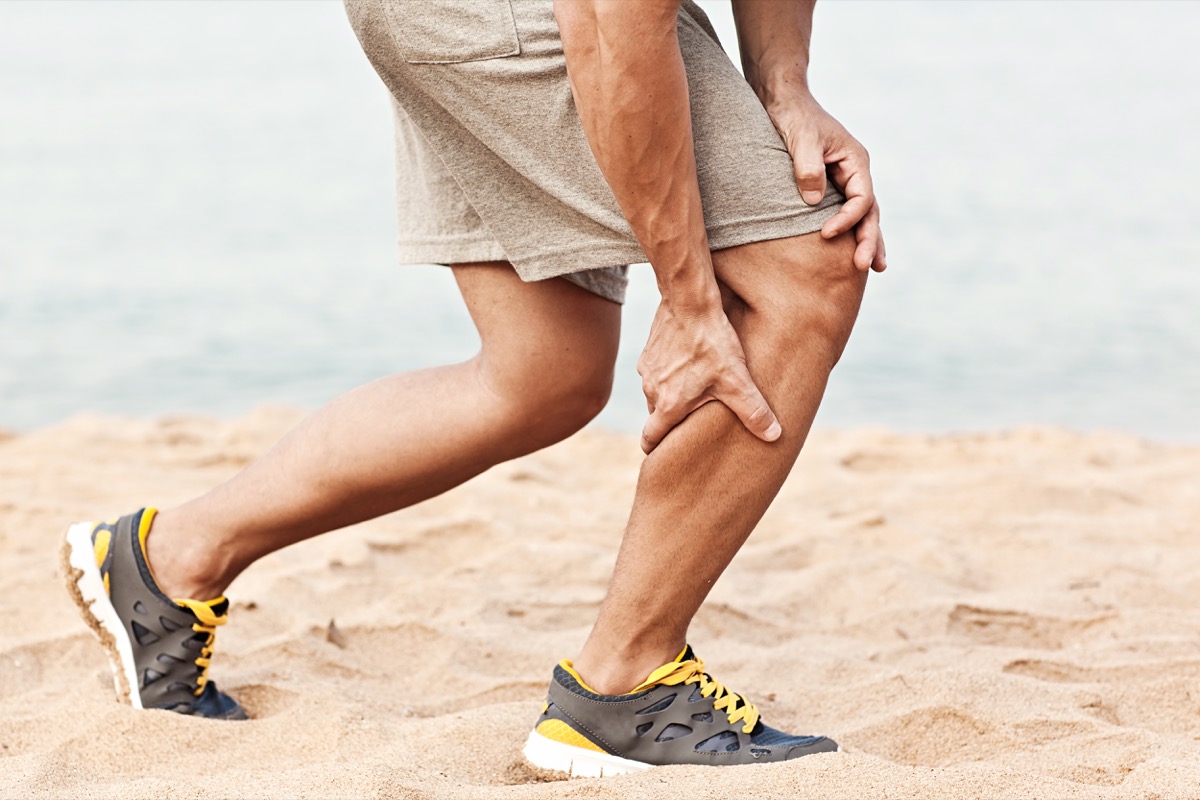
Calcium is important for muscle contraction, so if you have a calcium deficiency, you may notice aches, pains, muscle cramps, and spasms.
2. Heart palpitations

When your body is low on calcium, it can delay the electrical signals that control your heartbeat, leading to irregular heartbeat or heart palpitations.
However, many other underlying conditions can cause heart palpitations, including an imbalance of two other electrolytes, magnesium and potassium. It’s important to tell your doctor if you experience this symptom.
3. Tingling or numbness

Severe cases of hypocalcemia may impair nerve function. If this happens, numbness or tingling may occur in the fingers, toes, lips, tongue, or feet, the Cleveland Clinic says.
4. Weak or brittle nails
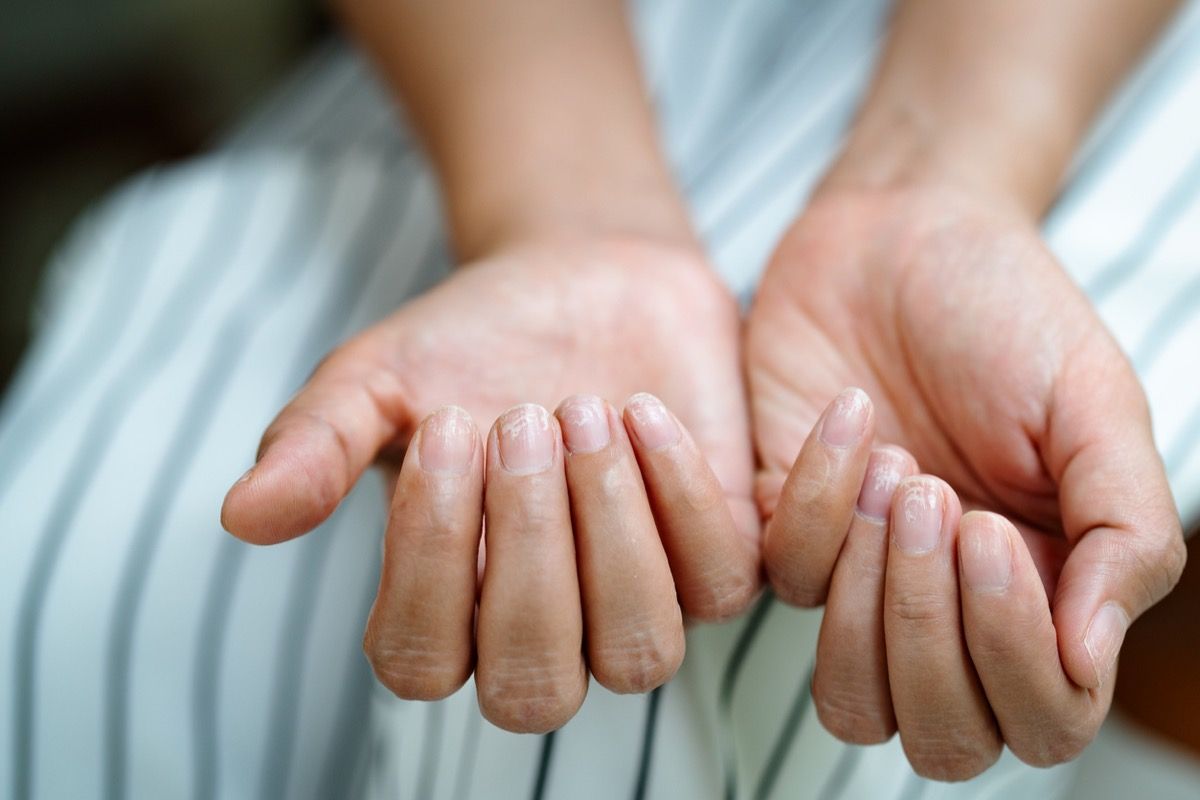
Calcium is needed to maintain strong, healthy fingernails. If you notice that yours are brittle, soft, or breaking regularly, this may indicate that you’re not getting enough calcium.
Dry skin and dry hair are related symptoms, Johns Hopkins Medicine points out.
5. Bone fractures
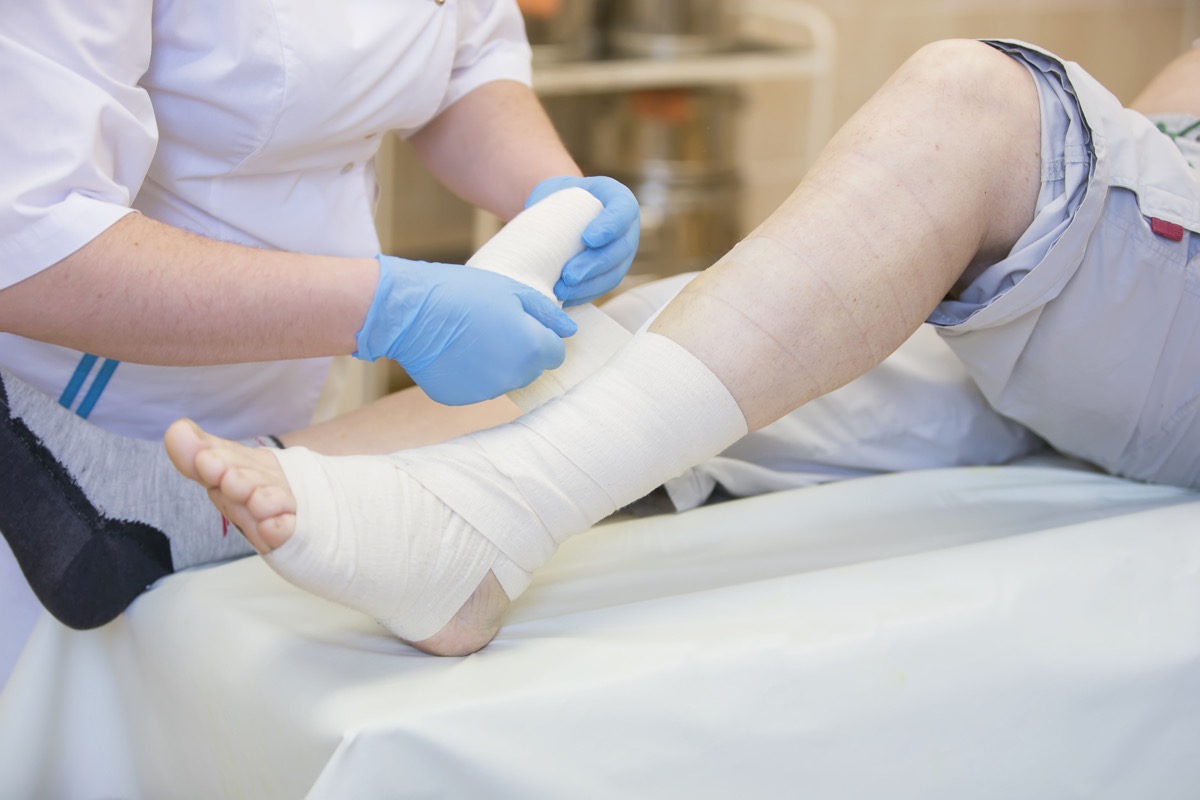
Your bones don’t only grow and develop during childhood—they continue to change throughout adulthood. If hypocalcemia has led to osteoporosis, this can affect the integrity of the bones, making it more likely that you’ll suffer from bone fractures.
6. Fatigue

Having very low levels of calcium can cause you to develop severe fatigue. “We suggest that fatigue may be caused by hypocalcaemia more frequently than is thought. All muscle fibers use ionized calcium as their main regulatory and signaling molecule,” says a 2002 study published in The Lancet.
7. Depression or confusion

Sometimes, people with hypocalcemia will also go on to develop certain neurological or psychological symptoms, including depression, confusion, memory loss, delirium, and hallucinations.
RELATED: 5 Supplements That Can Damage Your Kidneys, Doctors Say.
What Are the Causes of Calcium Deficiency?
A diet that lacks calcium

Not eating a diet that contains calcium-rich foods can cause a calcium deficiency. However, eating foods with misleading calcium content can also leave you low on the mineral.
According to the Harvard T.H. Chan School of Public Health, some foods that are full of calcium have low bioavailability, meaning the body will struggle to absorb it. Conversely, some foods that are lower in calcium have higher availability and higher absorption levels.
“For example, dairy foods have a bio-availability of about 30 percent absorption, so if a food label on milk lists 300 mg of calcium per cup, about 100 mg will be absorbed and used by the body. Plant foods like leafy greens contain less calcium overall but have a higher bioavailability than dairy. For example, bok choy contains about 160 mg of calcium per one cup cooked but has a higher bioavailability of 50 percent, so about 80 mg is absorbed. Therefore, eating one cup of cooked bok choy has almost as much bioavailable calcium as one cup of milk,” Harvard experts write.
Having low vitamin D levels

Your body needs vitamin D in order to absorb calcium from the small intestines. Dasgupta notes that having low vitamin D levels can, therefore, contribute to a calcium deficiency.
Vitamin K2 also plays an important role in calcium metabolism and can help your body better absorb vitamin D3, ultimately leading to better calcium absorption, Zagrodsky says.
Having a medical condition that affects absorption

Parathyroid problems frequently contribute to hypocalcemia. However, other underlying medical conditions, including celiac disease, kidney disease, and hormonal imbalances, can interfere with calcium absorption or increase its loss from the body.
Medications used to treat certain medical conditions can also decrease calcium absorption.
How Can You Treat a Calcium Deficiency?

Calcium deficiency is typically easy to treat.
“To treat a calcium deficiency, you’d want to eat more foods that contain calcium like dairy and leafy greens, or take supplements if needed. Making sure you get enough vitamin D from sunlight or vitamin D supplements is important too. If there are medical issues or medications causing the deficiency, those need to be addressed as well,” says Dasgupta.
There are several types of oral calcium supplements available on the market, including the two most common forms, calcium citrate and calcium carbonate. Zagrodsky recommends algae as a plant-based calcium supplement, noting that these contain many of the essential amino acids your body needs.
The bone health expert adds that if your ultimate goal is broader bone health, you should also talk to your doctor about any hormonal changes you may be experiencing and add weight-bearing exercise that stimulates osteogenesis.
RELATED: 9 Supplements That Can Damage Your Stomach, Doctors Say.
Is Hypocalcemia Preventable?

The good news? “Hypocalcemia can usually be prevented by making sure you eat a balanced diet rich in calcium, get enough vitamin D, avoid medications that interfere with calcium absorption, and keep an eye on your health with regular check-ups,” Dasgupta says.
Adrienne Bitar, PhD, a lecturer in food studies at Cornell University, tells Best Life that supplementation and certain prescription medications may also help you increase your calcium levels. Speak with your doctor to learn more about hypocalcemia and its available treatments.
Best Life offers the most up-to-date information from top experts, new research, and health agencies, but our content is not meant to be a substitute for professional guidance. When it comes to the medication you’re taking or any other health questions you have, always consult your healthcare provider directly.
- Source: NIH: Calcium
- Source: Harvard T.H. Chan School of Public Health: Calcium
- Source: Cleveland Clinic: Hypocalcemia
- Source: Cochrane: Extra calcium to prevent high blood pressure
- Source: Johns Hopkins Medicine: Hypocalcemia in Children
- Source: The Lancet: PDF [47 KB] Save Share Reprints Request Fatigue due to hypocalcaemia